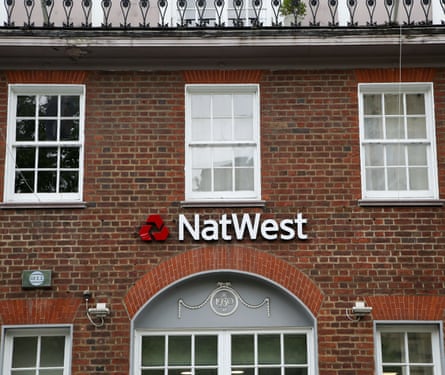Things are going from bad to worse for savers. A few days ago the Bank of England reported that interest rates were continuing to fall “to new historically low levels” and providers are still sending out letters to customers telling them that returns are being hacked.
That isn’t only causing frustration among those who rely on their savings for income or are trying to build up a nest egg – it is also tempting people to take extra risks and play into the hands of scammers. “Consumers looking around for more attractive savings rates is a fraudster’s dream,” Gareth Shaw, the head of money at the consumer group Which?, told Guardian Money this week. “With more people moving online to work, shop and bank since the start of the pandemic, and the ease in which scammers can post fraudulent content to attract would-be investors, consumers are at significant risk from this growing crime.”
Even the most competitive fixed interest rates on accounts are coming in at well below 2% at the moment, says Kevin Mountford, a co-founder of the savings provider Raisin UK. His advice is to “be suspicious of anything above this rate or anything that promises significantly above-average returns”. He adds: “Some people, unfortunately, do fall for savings account scams because they can look legitimate, and it’s becoming more and more common. What you don’t want to do is have suspicions and then ignore them, so even if something looks right, make sure you investigate fully.”
More than £200bn has been put into cash savings accounts since the Covid-19 lockdowns began in March 2020, according to the latest Bank of England data, which goes up to 30 June.
savings rates
But some of that cash is earning a pittance. When Money looked this week, we found that one in eight easy access savings accounts – 26 out of 211 – were paying only 0.01% interest. That was according to the website of the financial data provider Moneyfacts. That includes widely held accounts such as Halifax’s Everyday Saver, HSBC’s Flexible Saver, NatWest’s Instant Saver and Santander’s Everyday Saver.
Another big challenge is rising inflation, which will eat away at the value of people’s savings. The headline rate of inflation increased in June to 2.5%, and many economists predict it will head above 3% in the autumn. If you want your savings to keep pace, you will struggle. National Savings and Investments used to offer index-linked savings certificates, which guaranteed that your investment would grow in spending power each year, whatever happened to the cost of living, but they have not been on sale since 2011 (existing holders can renew them).
Against that backdrop, it may not seem worth putting money aside but there are some accounts offering better rates than the crowd.
Covid lockdown savings: how to make the most of spare cashRead more
Put some money away each month
Some of the best interest rates are offered by regular savings accounts, where you put aside money each month. Some of these accounts also give you the chance to win cash prizes.
A regular savings account paying a fixed 1.75% – one of the best rates out there – has just been launched by Essex-based Saffron building society. The Small Saver account is aimed at those with limited incomes, although it is available to anyone in the UK over the age of 16 and can be opened and managed online or via the building society’s app.
The account requires a minimum balance of £1 and the maximum you can hold in it is only £600. You have to deposit between £1 and £50 per calendar month, and withdrawals are limited to one a month.
You won’t get rich on the interest – you will earn £5.69 in interest after 12 months, assuming the maximum monthly payment of £50 and no withdrawals – but it is a good account for those new to saving. Savers will have access to financial wellbeing support, including regular tips, advice and webinars. The idea is that when the account matures in 12 months’ time, anyone who struggled with money in the pandemic will have a more positive financial outlook.
Also trying to encourage first-time savers is NatWest, which this week launched a savings competition that will result in 10 customers winning £1,000 each for opening an account and developing a regular savings habit.
To be in with a chance of winning, you need to open a Digital Regular Saver account before the end of this month – you have to have a NatWest current account in order to apply – then set up a standing order for between £1 and £50, and make payments in September, October and November. The winners will be chosen in December.
 View image in fullscreenNatWest has launched a savings competition. Photograph: Dinendra Haria/SOPA Images/Rex/Shutterstock
View image in fullscreenNatWest has launched a savings competition. Photograph: Dinendra Haria/SOPA Images/Rex/Shutterstock
Unlike many other regular savings accounts, the Digital Regular Saver does not expire after a year. It also allows withdrawals to be made without the need to close the account. Interest is paid monthly, with the top rate of 3% paid on balances of up to £1,000 (the rate then falls to 0.01%). If you pay in £50 a month and make no withdrawals, after 12 months you will earn £9.88 in interest.
Nationwide has a regular savings account called Start to Save, which is designed to encourage people to build up a nest egg and gives them the chance to win prizes of £100 each by saving regularly.
July’s draw had a prize pot of £275,600, with 2,756 savers winning cash. The next prize draw takes place on 21 October, and the society is adding an extra one, on 24 January 2022, which is currently scheduled to be the final one.
The more people save, the more prizes there are because the fund in each draw equates to 1% of the total increase in the balances of all eligible accounts. Savers are entered if they increase their account balance by £50 to £100 in each of the three calendar months prior to that draw. Depending on how big the prize fund is, your chance of winning is between one in 34 and one in 67.
Start to Save currently pays 1% interest. It is an online instant access account, so you can access your money whenever you need to, although this may affect your entry into the draw.
There are other decent regular savings accounts out there but some have restrictions as to how they can be opened. For example, West Bromwich building society’s Adult Fixed Rate Regular Saver lets you save from £10 to £100 a month and pays 2%, fixed for 12 months. However, it can only be opened in one of the West Brom’s 36 branches.
Kids get great rates
The interest rates on children’s accounts are often much better than those on adult accounts.
For example, Santander has the 123 Mini current account, which pays up to 3%. That rate applies to the entire balance once it reaches £1,500, up to a maximum of £2,000. On smaller sums the rate is either 1% or 2%. For children under 13, the account must be opened in trust and managed by an adult. Those aged 13 to 17 can apply online.
HSBC has the instant access MySavings account, which pays 2.5% on balances of up to £3,000 (and 0.25% above that). Anyone aged seven to 17 can open one, although if you are under 16 you will need a parent or guardian with you.
 View image in fullscreenChildren’s accounts often offer better interest rates than those on adult accounts. Photograph: Sally Anscombe/Getty Images
View image in fullscreenChildren’s accounts often offer better interest rates than those on adult accounts. Photograph: Sally Anscombe/Getty Images
The West Brom has a Children’s Fixed Rate Regular Saver, paying a fixed 2.5%, which lets people save £10 to £75 a month, though this can only be opened at a branch.
Similarly, Wales’s Principality building society has the Learner Earner account, which pays 2.35% on balances of between £1 and £20,000 but can only be opened in branch or at an agency. It has to be opened with an adult, and the maximum age for a child opening this account is 17. You can pay in up to £250 each month and take money out three times each calendar year, and once you have saved £20,000, you cannot put any more money in.
Junior cash Isas often pay good rates, too. These are long-term, tax-free accounts into which you can put up to £9,000 each tax year on behalf of a child under 18 living in the UK. Loughborough building society has a Junior cash Isa paying 2.5%, while Coventry building society’s pays 2.25%.
Fix your rate for a better return
Some of the best interest rates are offered by fixed-rate savings accounts, where you typically have to tie up your money for a year or more.
These deals can tend to come and go quite quickly, so keep a close eye on Moneyfacts’s tables to see who is offering what.
The top-paying one-year fixed rate bonds are offering a little over 1%
At the time of writing, JN Bank (the UK arm of a Jamaican bank) was offering one of the highest rates on a five-year fixed rate bond: 1.7%. The minimum amount needed to open this account is £1,000, with no early withdrawals allowed.
The top-paying one-year fixed rate bonds are offering a little over 1%. For example, Tandem Bank is paying 1.07%.
The peer-to-peer lending website Zopa now has a banking licence and is offering a range of fixed-term savings accounts paying (at the time of writing) 1.1% if you fix for a year, 1.43% over three years and 1.61% if you opt for a five-year term. You can start saving from £1,000.
Make use of government top-ups
Rubbish interest rates are less important if you are getting hundreds – or even thousands – of pounds of free cash from the government.
The lifetime Isa lets people save for either a property or retirement. You can put away up to £4,000 each year until you are 50, and the government will add a 25% bonus to your savings, up to a maximum of £1,000 a year. To open one you must be aged 18 to 39. The financial app Moneybox offers a cash lifetime Isa paying 0.85%, although this rate is boosted by a fixed one-year interest bonus of 0.6%.
The help-to-buy Isa, meanwhile, closed to new applicants in late 2019 but hundreds of thousands of them are sitting there waiting to have some money put in. With this account, the government will give you up to £3,000 towards buying your first home. If you have one of these Isas but have not yet got it fully going, perhaps now is the time to start putting some money in.


